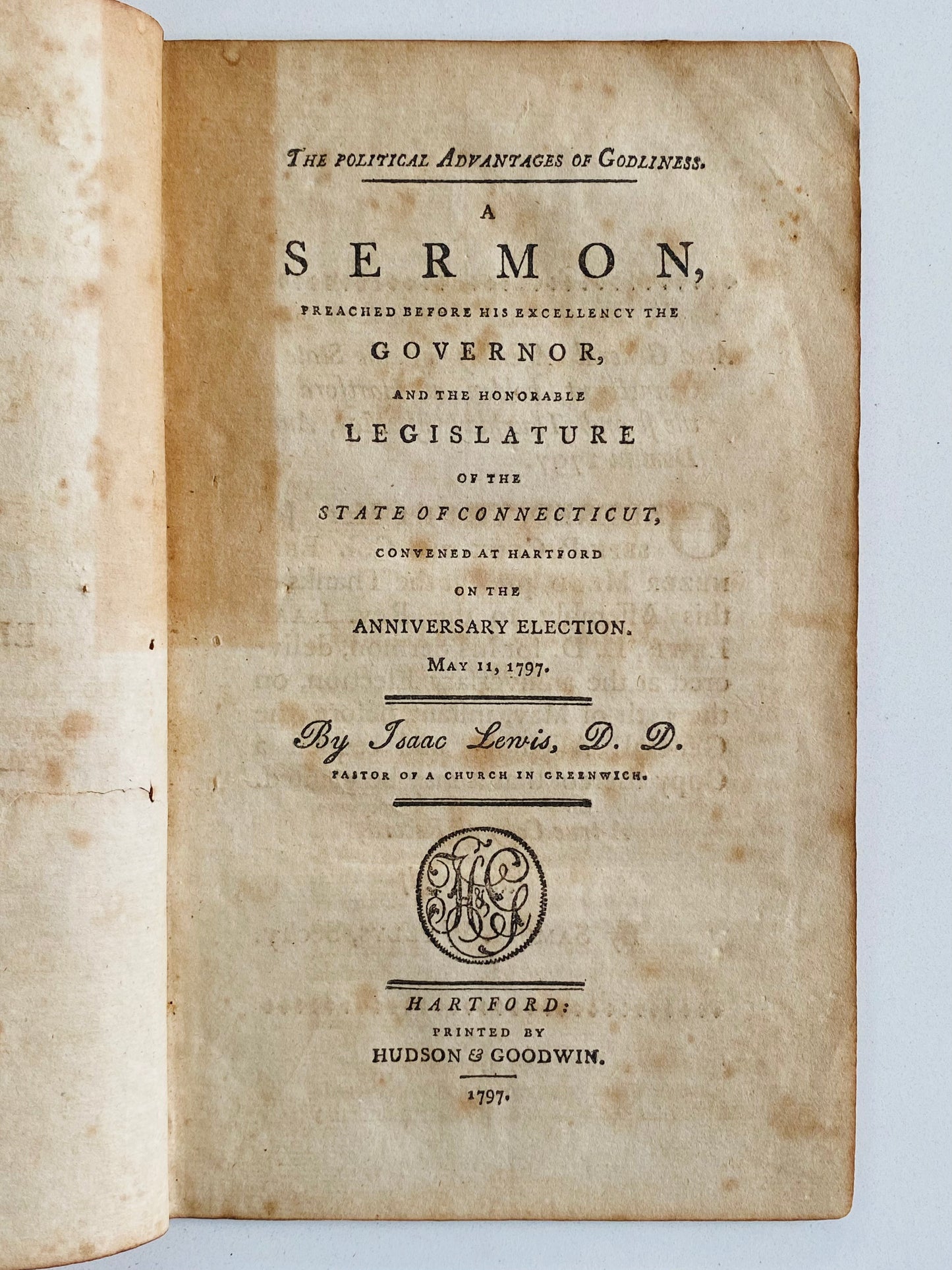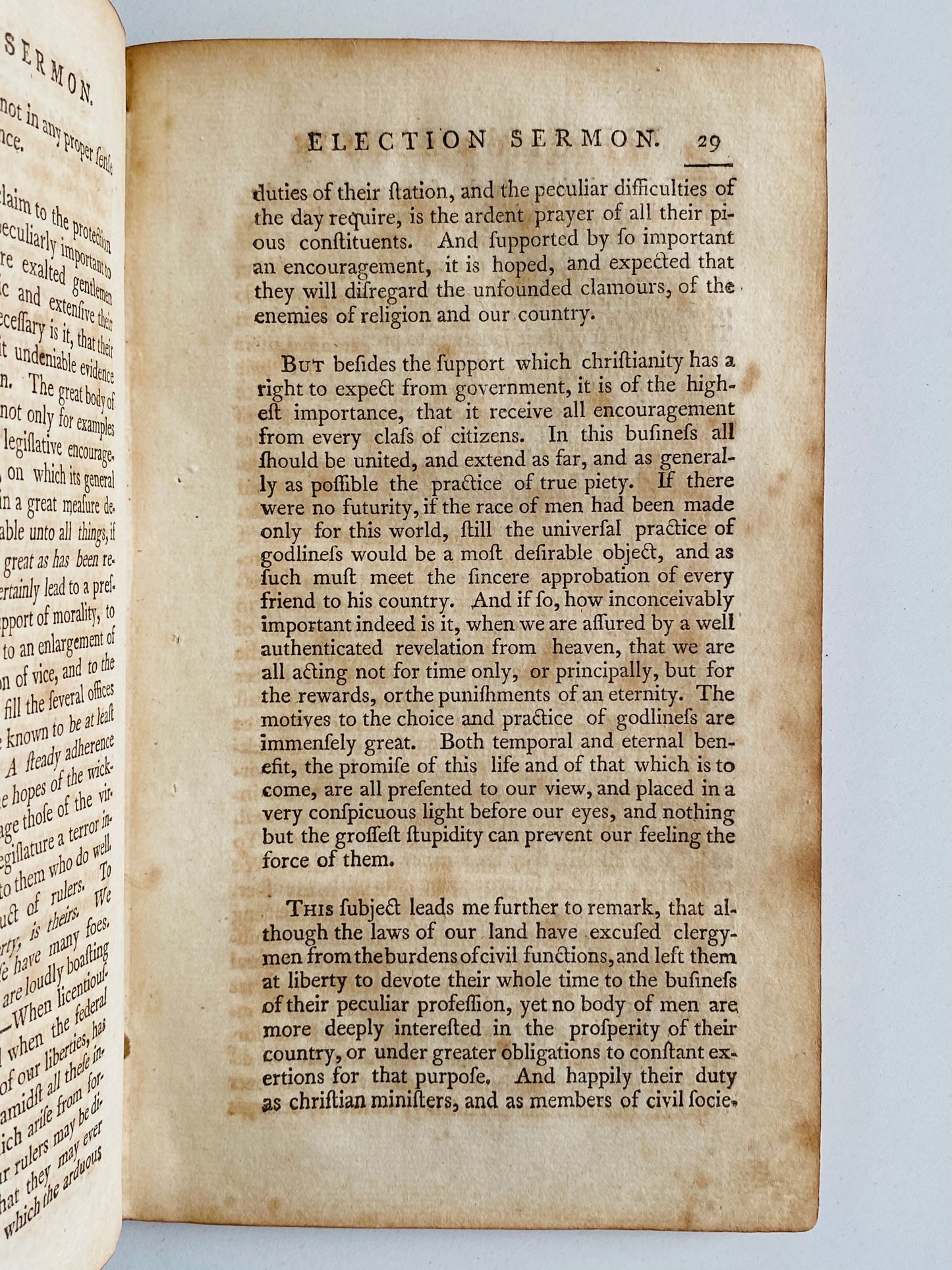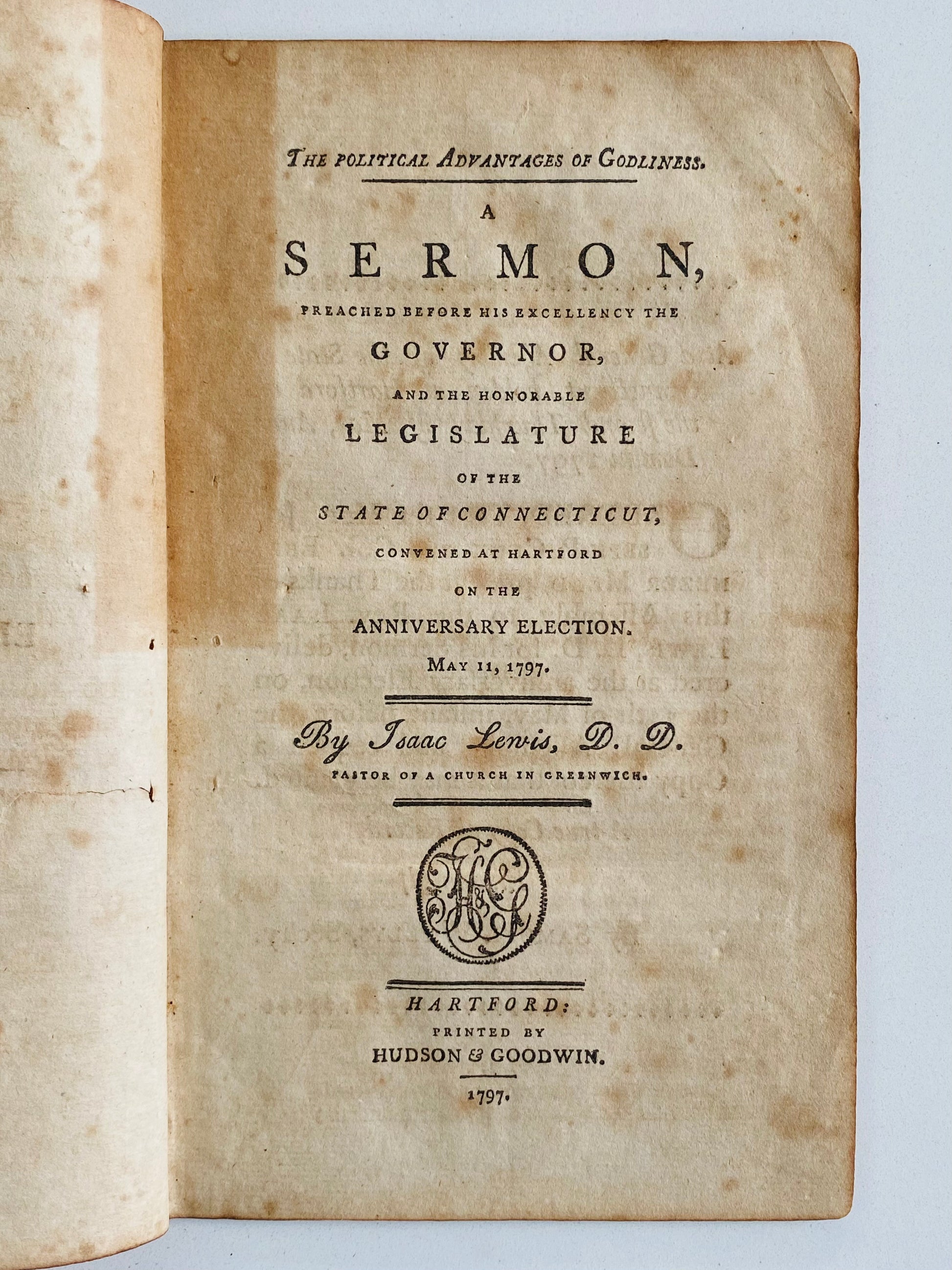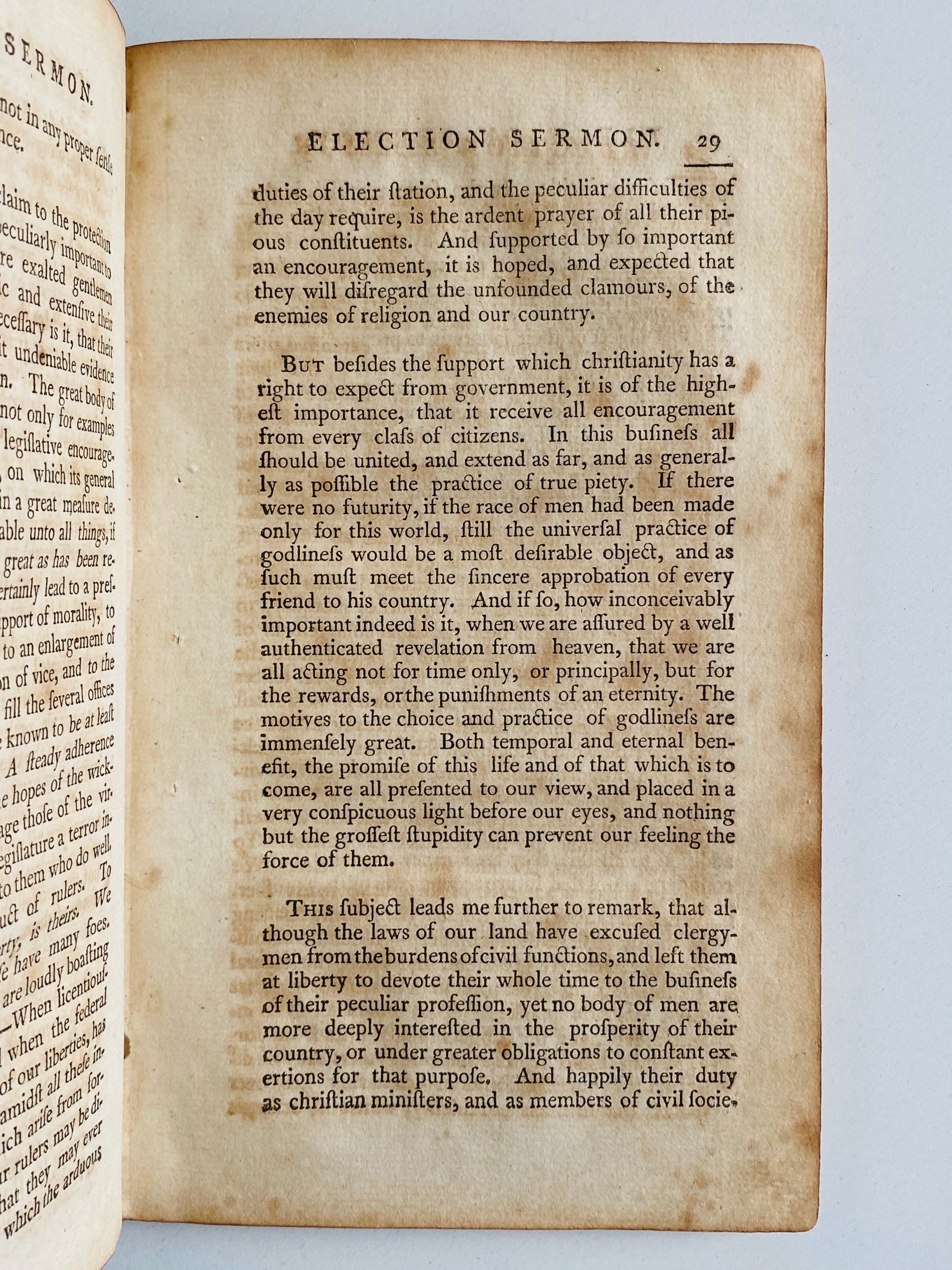Specs Fine Books
1797 ISAAC LEWIS. Revolutionary War Chaplain on the Benefits of Godliness to the Government and Country
1797 ISAAC LEWIS. Revolutionary War Chaplain on the Benefits of Godliness to the Government and Country
Couldn't load pickup availability
Isac Lewis (1768-1840) was a Yale graduate and served as Chaplain to the State Militia of Connecticut during the American Revolutionary War; superb sermon on the interaction between national piety and the success of a national government.
Isaac Lewis. The Political Advantages of Godliness. A sermon preached before His Excellency the Governor, and the Honorable Legislature of the State of Connecticut, convened at Hartford on the anniversary of the election. May 11, 1797. Hartford. Hudson and Goodwin. 1797. 31pp.
Godliness is no less salutary to a community, by the influence, which it has on the great body of the people. As it secures the fidelty of rulers, so it makes good citizens. If its practice could once become universal in a nation, it would produce such a conduct in all ranks, as would issue in general prosperity. So far as national happiness depends, on the promotion of social virtues - on the cultivation of benevolence, kindness, justice, and charity - on the prevalence of harmony and tranquility, the practice of godliness has a direct tendence to its advancement. . . .
. . . But I take the liberty of farther observing, that godliness promotes national prosperity, as it contributes to an increase of wealth. If any should call in question the truth of this observation, let me desire him to remember, that there are few vices but what are luxurious; that they are expensive, and even prodigal both of time and money; and that those which are most corrupting, which spread their contagion the most rapidly, which ever have and ever will prevail where godliness is neglected, are not only such as devour property, but such as introduce disease, debility, idleness, and even an aversion to every species of labor, and thus dry up the very sources of national wealth . . .
. . . I feel a peculiar happiness on this occasion, in being able to confirm these sentiments, by the authority of that most excellent man, that best of Patriots [John Adams], whose distinguished talents and eminent abilities, faithfully consecrated to his country's service, have not only in an unexampled manner endeared him to his fellow-citizens, but rendered him the object of veneration of the world. From that valuable legacy of political experience and sentiment, which he bequeathed to his country, in his address accompanying his resignation, I gladly introduce the following passages . . .
"It is substantially true, that virtue or morality is a necessary spring of popular government. The rule indeed extends with more or less force to every species of free government. Who that is a sincere friend to it, can look with indifferency on attempts to shake the foundation of the fabric?"
. . . If religion then has a just claim to the protection of government, it must be peculiarly important to official characters. The more exalted gentlemen are in office, the more public an extensive their sphere of action, the more necessary it is, that their whole conduct should exhibit undeniable evidence of their attachment to religion.
Textually complete and good; removed from a larger sammelband with the attending residue on spine and abrasion to inner margin at the first and last leaf. Some light toning and foxing.
Share




